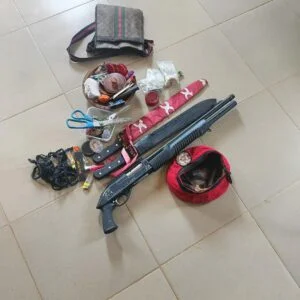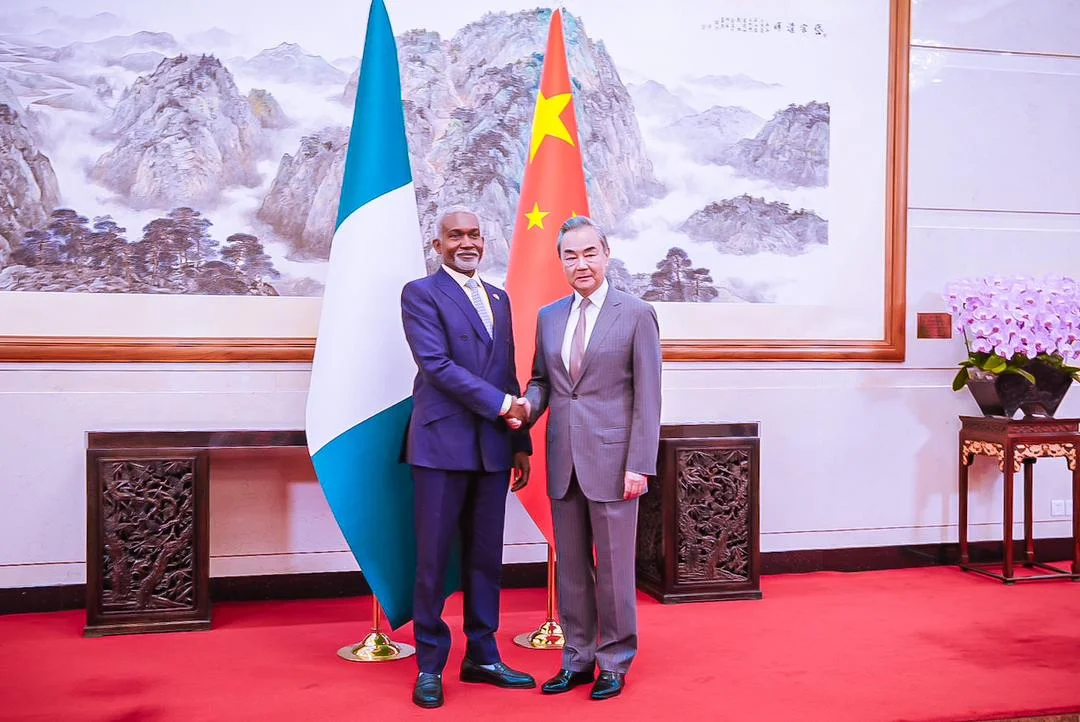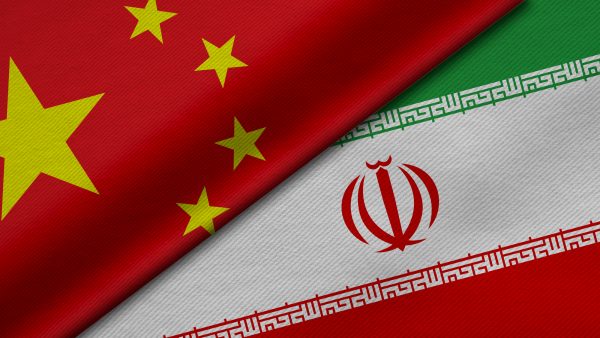Crime
China pledges support to develop Nigeria’s trado-medicine sector

Amb. Cui Jianchun, Ambassador of the People’s Republic of China to Nigeria, says China is ready to support Nigeria in developing its Traditional-Medicine (Trado-Medicine) sector to boost the country’s economy.
Cui made this known on Thursday in Abuja during a Seminar and lecture on “Developing Nigerian-Chinese Traditional Medicine”, which organised by the Nigerian Youth Congress (NYC) in collaboration with the Chinese Cultural Centre.
According to Cui, Nigeria has a huge potential which when properly harnessed, with the support of the Chinese government will boost the country’s economy and promote good health and longevity of citizens.
He said that the Chinese government through its Embassy in Nigeria will train Nigerian youths in developing herbal medicine through a technology-driven process.
“I am thinking, how can we work together with Nigeria to solve this problem, China has done it and I do believe we can do it.
“I have discussed with the Youth Congress and we believe how can we give the youths the opportunity to take lead, to develop this country, so we think this project in medicine is a good project.
“I fully promised the President how we can give the opportunity not only use the technology of medicine and try to build a project not only benefitting the people but also benefitting the economy.
“This I think how can we establish more pilot projects because traditional medicine really is important to the International Community and I do believe Nigeria we have our advantage, how can we catalyse, take advantage.
“And bring young people in this to take a lead and build a joint project and to make it successful and make it expand. How can we encourage young people to take the lead, to do something for this nation?
“This is not about lip service but leadership, to work together, mobilise the whole society to eradicate poverty, and I do believe we can get something and have Nigerians to work together.
“I hope this seminar is successful, it will be a good template to expand the food security,” Cui said.
Mr Mohammed Abdullahi, the Minister of State, Science and Technology, said that the goal of President Muhammadu Buhari is to eradicate poverty and herbal medicine has been revealed to yield about 50 billion dollars by 2030.
Abdullahi said it is important that youths are sensitised to the knowledge of herbal medicine from natural products for the treatment of diseases.
According to him, youths have a very important role in improving Nigeria’s economy if effectively sensitised on alternative medicine.
“The ministry through its agencies are ready to support the youths who have innovative ideas in herbal medicines as we have been partnering with appropriate institutions and some traditional medicine practitioners across Nigeria.
“To facilitate scientific evaluation, clinical trials and registration of herbal medicines found effective for the management of the disease.
“The ministry is ready to collaborate with the Chinese government to improve herbal medicine in Nigeria.
“And subsequently send traditional medicine practitioners to China for adequate training and we will continue to collaborate,” Abdullahi said.
Mr Blessing Akinlosotu, the President, NYC, said the association, knowing the importance of traditional medicine to boost Nigeria’s economy, initiated the discussion with the Chinese Embassy.
He appreciated the Chinese Ambassador for his support, adding that Nigeria is also ready to learn from China’s success to develop its own traditional medicine sector.
“We initiated this with the Chinese Embassy and discussed how we can collaborate to do so many things, and part of it is in the aspect of this traditional medicine.
“You will agree with me that China has the best of this traditional medicine and they are making a lot of huge amount from it.
“This tells you that if Nigeria and all the stakeholders come together to do same because we have all the natural resources, the plants, the people, the practitioners.
“But the only thing we need to do is to encourage them, to see what we can do to bring governments to support them so that Nigeria can also generate a lot of economic gains from these traditional medicines,” Akinlosotu said. (
Crime
Police Foil Cult Initiation in Anambra, Arrest Six Suspects

The Anambra State Police Command has foiled a cult initiation ceremony in Nawfia, Njikoka Local Government Area of the state.
Spokesperson for the Command, SP Tochukwu Ikenga, disclosed this in a statement issued on Tuesday in Awka.
According to Ikenga, the operation was carried out by police operatives around 9:30am on June 15, leading to the arrest of six suspects at the scene.
Recovered during the raid were one Jojef pump action gun, two cartridges, and a golden-coloured Lexus SUV with registration number ATN 202 AE. Other items found include two cutlasses, two scissors, a cap bearing the inscription of the Supreme Vikings Confraternity, charms, and substances suspected to be hard drugs.
“They are currently undergoing police interrogation to get more insight into their modus operandi, after which the case will be charged to court on the conclusion of the investigations,” Ikenga stated.
The police spokesperson reassured residents of the command’s unwavering commitment to fighting cultism and other related crimes across the state.
Crime
Court remands 2 over alleged attempted murder

An Ikeja Magistrates’ Court, Lagos, on Wednesday, remanded two persons, Olaitan Fasasi and Kehinde Tobiloba in a correctional facility over alleged attempted murder.
Fasasi, 40, and Tobiloba, 26, whose addresses were not provided, are being charged with conspiracy, attempted murder and membership of a secret society.
The Magistrate, Mr L.A Owolabi, did not take the plea of the defendants for want of jurisdiction.
Owolabi directed the police to forward the case file to the Director of Public Prosecution for legal advice.
He thereafter adjourned the case until May 31 for mention.
The Prosecutor, Josephine Ikhayere, told the court that the defendants committed the offences at about 5.02p.m on Feb. 15, at Mushin, Lagos.
She said that Fasasi, Tobiloba and others now at large, attempted to commit murder by shooting at a resident, Alfred Ademola.
“They armed themselves with a locally made gun. They belong to Eiye Confraternity, a group proscribed by law,”, she said.
Ikhayere said that the offences contravened Sections 230(1) and 411 of the Criminal Law of Lagos State, 2012.
He said that the actions of the defendants also contravened Section 2(3)(a)(b)(c)(d) of the unlawful societies and Cultism Law of Lagos State Law.
Crime
Man jailed 3 months for stealing mobile phone

An Area Court in Jos, on Tuesday, sentenced one Jeptha John, to three months imprisonment for stealing a Redmi mobile phone valued at N165, 000.
The judge, Shawomi Bokkos, sentenced the John after he pleaded guilty to the offence.
The judge, however, gave the convict an option to pay N20, 000 fine and N50, 000 restitution to the complainant.
Bokkos said that if the convict defaulted in paying the restitution, three months should be added to his sentence to make it six months imprisonment.
Earlier, the police prosecutor, Insp Monday Dabit, told the court that the case was reported at the B Division Police Station, Jos, on Dec. 1, 2024, by Ms Nerat Danjuma.
He said that the complainant alleged that the defendant trespassed into her house and stole her mobile phone valued at N165, 000.
The prosecutor further told the court that the offence contravened the Plateau State Penal Code, Law of Northern Nigeria.
-

 Headlines4 years ago
Headlines4 years agoFacebook, Instagram Temporarily Allow Posts on Ukraine War Calling for Violence Against Invading Russians or Putin’s Death
-

 Headlines4 years ago
Headlines4 years agoNigeria, Other West African Countries Facing Worst Food Crisis in 10 Years, Aid Groups Say
-

 Foreign4 years ago
Foreign4 years agoNew York Consulate installs machines for 10-year passport
-

 News1 year ago
News1 year agoZero Trust Architecture in a Remote World: Securing the New Normal
-

 Entertainment3 years ago
Entertainment3 years agoPhyna emerges winner of Big Brother Naija Season 7
-

 Headlines1 year ago
Headlines1 year agoNigeria Customs modernisation project to check extortion of traders
-

 Entertainment2 years ago
Entertainment2 years agoMovie download platform, Netnaija, announces closure
-

 Economy2 years ago
Economy2 years agoWe generated N30.2 bn revenue in three months – Kano NCS Comptroller














